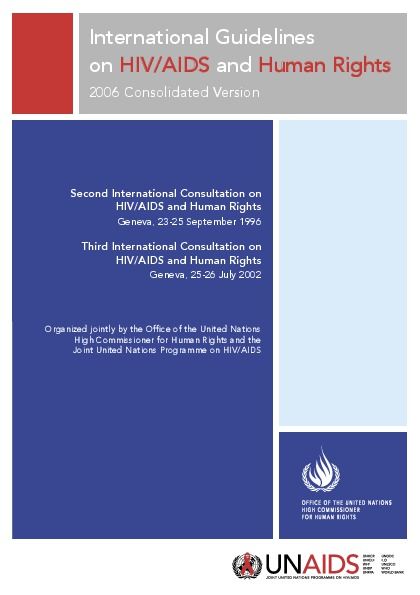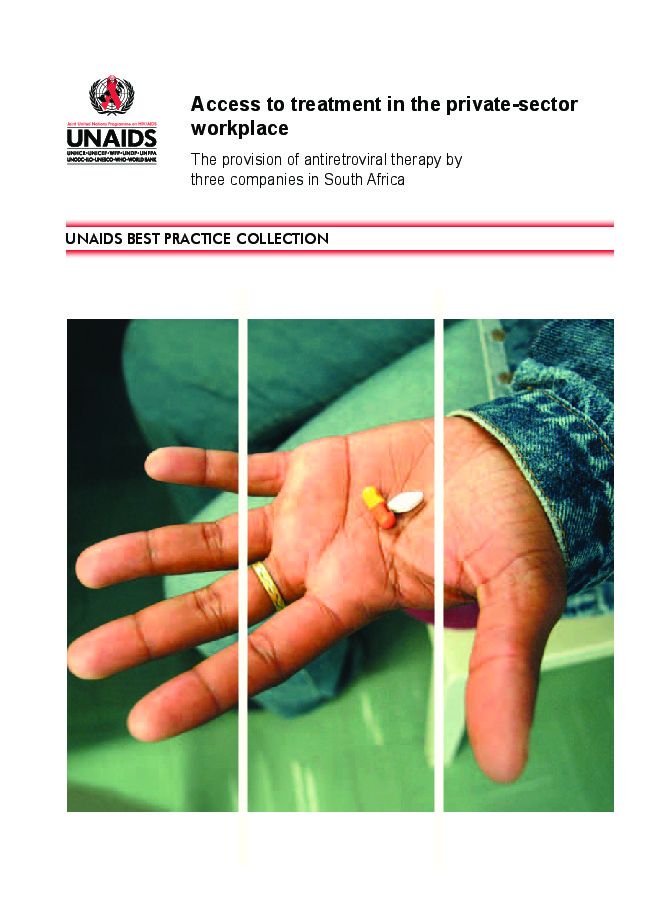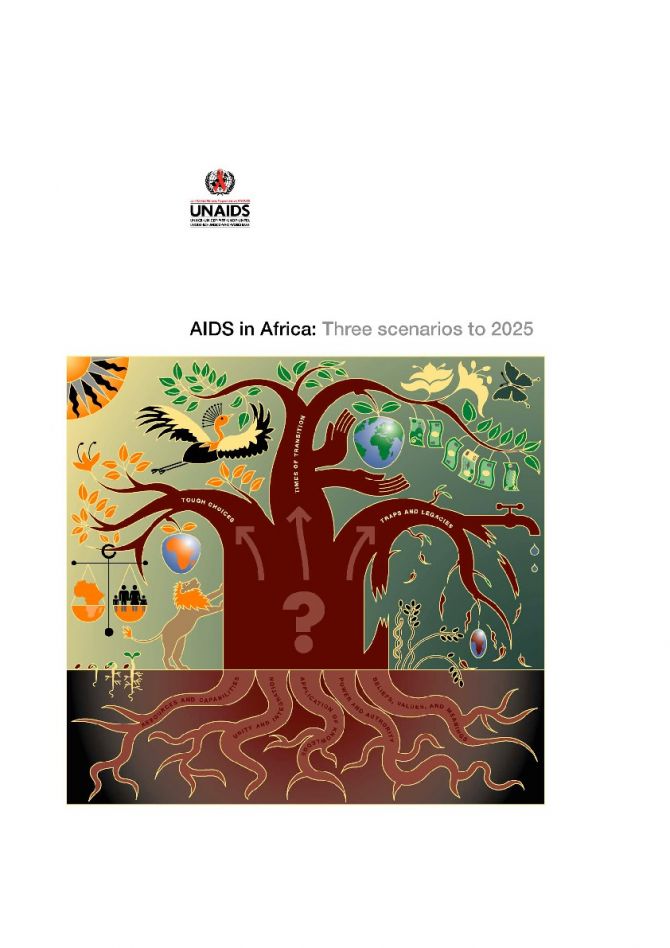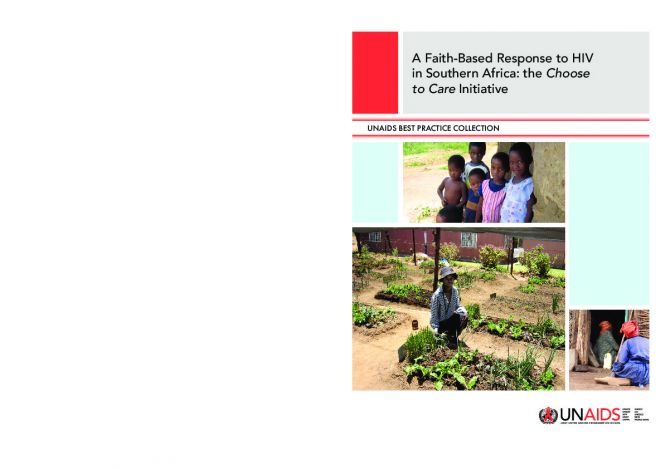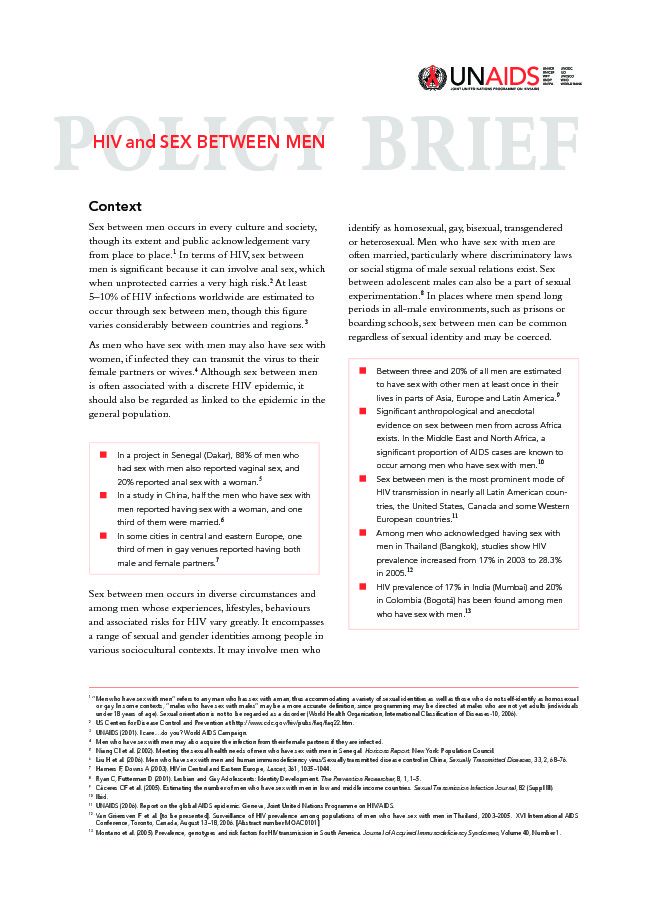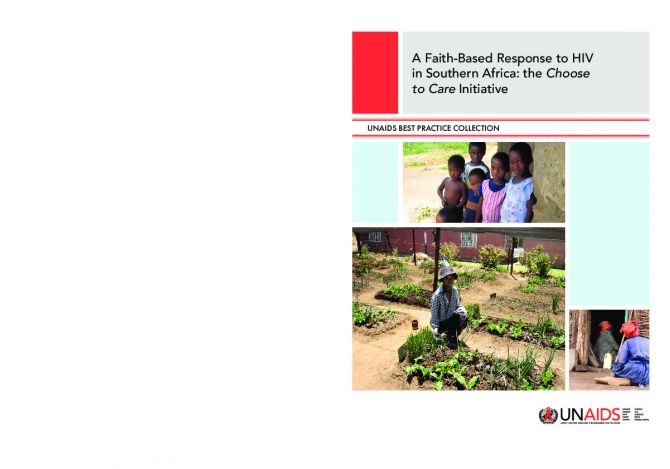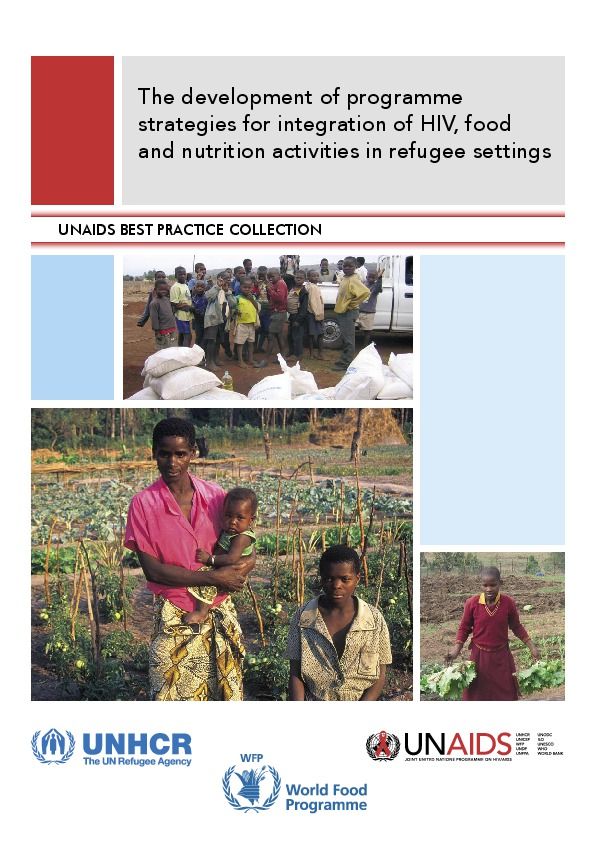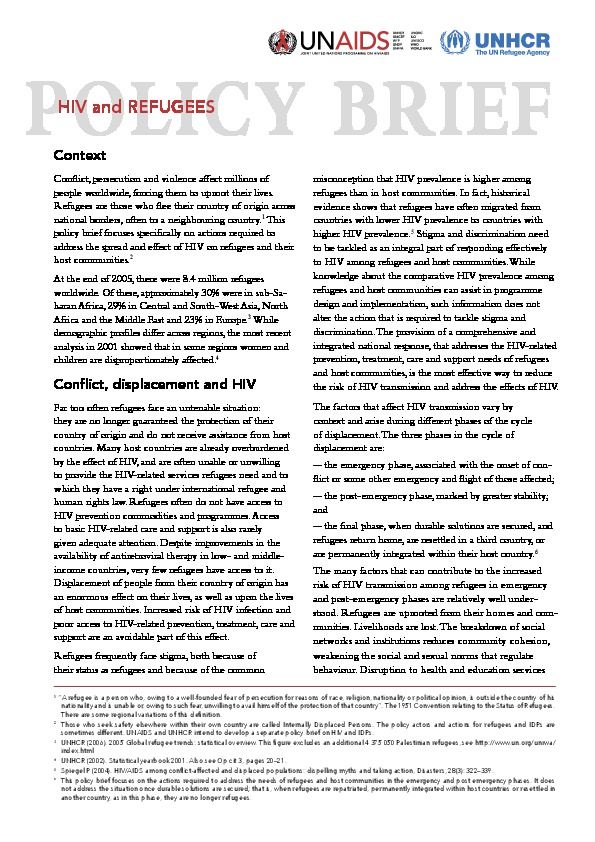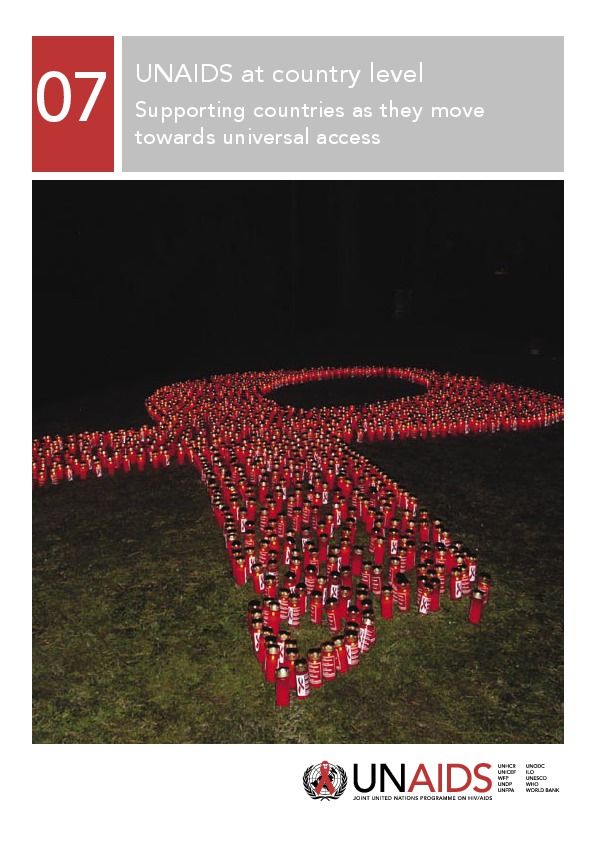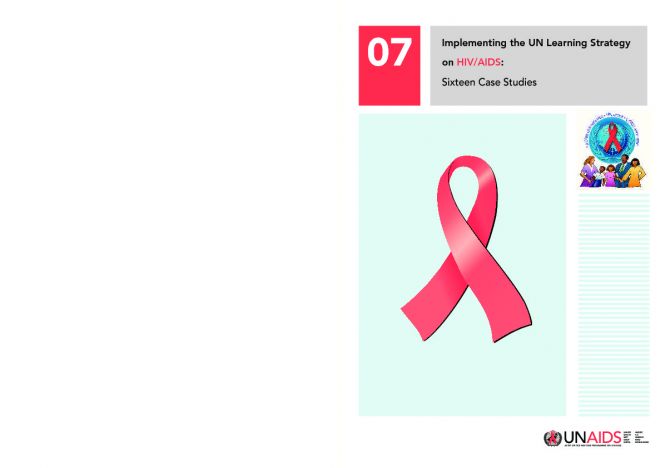Documents
International Guidelines on HIV/AIDS and Human Rights
23 October 2006
The International Guidelines on HIV/AIDS and Human Rights arose because of various calls for their development in light of the need for guidance for Governments and others on how to best promote, protect and fulfil human rights in the context of the HIV epidemic. During the first International Consultation on AIDS and Human Rights, organized by the United Nations Centre for Human Rights, in cooperation with the World Health Organization, in Geneva, from 26 to 28 July 1989, participants discussed the possible elaboration of guidelines to assist policymakers and others in complying with international human rights standards regarding law, administrative practice and policy
Documents
Access to treatment in the private-sector workplace The provision of antiretroviral therapy by three companies in South Africa
23 October 2006
Access to treatment in the private-sector workplace; the provision of antiretroviral therapy by three companies in South AfricaAntiretroviral therapy (ART) is having a huge impact on the lives of those who have access to it. For them, AIDS has become a manageable condition rather than a death sentence. However, for the vast majority of people living with HIV, nothing has changed because neither they nor their countries’ health-care systems can afford to pay for antiretroviral therapy.One source of hope comes from the business sector. The workplace—both private and public—provides many opportunities for extending access to treatment, through occupational health schemes and health insurance schemes. A number of companies now have experience in providing antiretroviral therapy for their employees (and, in some cases, also for dependants). Given the impact of the epidemic, there is a clear economic advantage for companies in offering employees access to treatment and in demonstrating a strong corporate responsibility.After a brief description of the important components of workplace programmes on HIV/AIDS, this case study features three companies in South Africa that are providing antiretroviral therapy to their employees: AngloAmerican, BHP Billiton and Eskom. Detailed descriptions are given of the companies’ antiretroviral therapy and care-and-support programmes, with an analysis of their differing approaches and shared challenges. Public health provision should be strengthened, not undermined, by the contribution of the private sector to HIV and AIDS treatment. The companies profi led in this report are working with government, communities and civil society to extend treatment nationwide, through various projects and programmes and by setting an example of sustainable access to treatment and care.
Documents
AIDS in Africa: Three scenarios to 2025
12 December 2006
This project uses stories rather than projections to explore the future of AIDS in Africa over the next 20 years. Statistics may give a succinct and tragic snapshot of recent events, but they say little of the AIDS epidemic’s wider context, or its complex interconnections with other major issues, such as economic development, human security, peace, and violence. Statistics can only hint at the future.
Documents
A Faith-Based Response to HIV in Southern Africa: the Choose to Care Initiative
09 January 2007
This study describes the work of the Choose to Care initiative of the Catholic Church in Southern Africa. It shows that effective scaling up of programmes in the response to HIV, and work towards making Universal Access a reality, does not necessarily have to be the expansion of a single central service. Through the Choose to Care initiative the Church scaled up service provision by the replication of smaller scale programmes rooted in and responsive to their immediate communities’ needs. The study shows that such an approach is effective when undertaken within common guidelines and given central support.
Documents
Policy Brief : HIV and Sex between men
19 January 2007
Sex between men occurs in every culture and society,
though its extent and public acknowledgement vary
from place to place. In terms of HIV, sex between
men is significant because it can involve anal sex, which
when unprotected carries a very high risk. At least
5–10% of HIV infections worldwide are estimated to
occur through sex between men, though this figure
varies considerably between countries and regions.
Documents
A Faith-Based Response to HIV in Southern Africa: the Choose to Care Initiative
27 January 2007
This study describes the work of the Choose to Care initiative of the Catholic Church in Southern Africa which began in 2000. It shows that effective scaling-up of programmes in the response to HIV does not necessarily have to be the expansion of a single central service. Working through the diocesan and parish system, coordinated by the AIDS Office Southern African Catholic Bishops’ Conference, and originally funded by the Catholic Mission Medical Board and other Catholic funding agencies, the Catholic Church scaled up service provision by the replication of smaller scale programmes rooted in and responsive to the needs expressed by local communities in this five-country area. This study shows that such an approach is effective when undertaken within common guidelines and given central support.
Documents
The development of programme strategies for integration of HIV, food and nutrition activities in refugee settings
15 February 2007
In 2003 UNHCR, WFP, and UNICEF launched a joint effort to develop, through multi-site field research in refugee communities in Africa, a set of strategies for using food and nutrition-based interventions to support HIV transmission prevention, impact mitigation, and care, treatment, and support for people living with HIV. This important collaborative initiative grew out of the recognition that refugee settings are unique. It was recognized also that specific research is required conducted among and with refugees. This Best Practice document discusses the research process and findings of this interagency initiative.
Documents
Policy Brief : HIV and Refugees
15 February 2007
The Policy Brief recommends actions that governments and their international and civil society partners must take to respond to HIV in the context of refugees. The policy also offers best practice examples and first-person accounts from policy makers who have taken exemplary actions in this area. It builds on the commitments made by States as part of the 2006 High Level Meeting on AIDS, the International Human Rights Law and the 1951 Convention relating to the Status of Refugees, wherein States parties committed to providing refugees with the same “public relief and assistance” as their nationals, including medical care.
Documents
UNAIDS at country level Supporting countries as they move towards universal access
15 February 2007
This publication reviews the country- level work of UNAIDS in 2005 and early 2006 within the context of regional and global efforts to move towards universal access. During this period, UNAIDS focused its country support work on two main areas. The first was improving the architecture of the AIDS response in the face of increasing complexity, growing resources and the involvement of new actors. The second priority of country work was securing political commitment to a dramatic expansion of services for prevention, treatment, care and support. Based on this period this report discusses the major centres of work and illustrates them through examples from specific countries. Brief descriptions are also provided for the work of each of the ten Cosponsors of UNAIDS.
Documents
Implementing the UN Learning Strategy on HIV/AIDS: Sixteen Case Studies
01 March 2007
The Committee of Cosponsoring Organizations (CCO) of UNAIDS approved a Learning Strategy adopted in 2003 to help UN system staff develop competence on AIDS issues. This report is comprised of UN AIDS Learning Strategy case studies from sixteen countries: Botswana, Brazil, Burkina Faso, Cape Verde, India, Indonesia, Macedonia, Madagascar, Morocco, Nigeria, the Pan American Health Organization headquarters (United States), Pakistan, Paraguay, Vienna (Austria), Viet Nam, and Yemen. It presents each country’s unique experience in implementing the strategy since its adoption.

